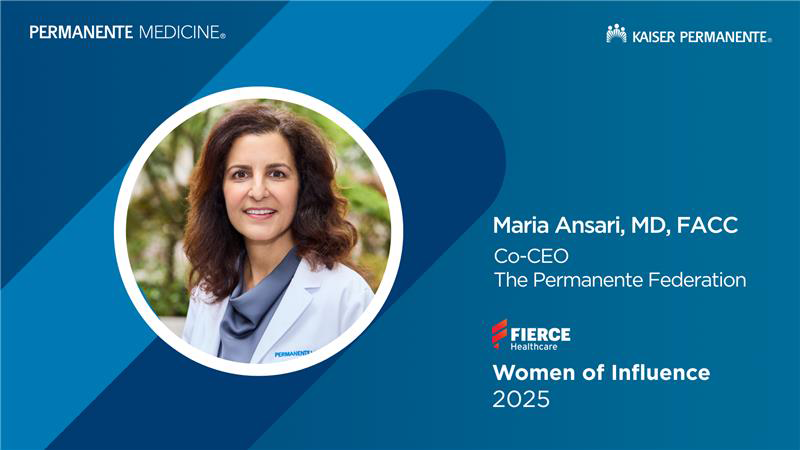Permanente physician leader selected for deploying advanced precision-medicine pathways, 24/7 virtual urgent care, and AI-powered scribe technology.

Experts discuss benefits, challenges of anti-obesity drugs in The Permanente Journal
An expert panel discussion convened by The Permanente Journal explored the clinical, systemic, and societal impact of anti-obesity drugs like Ozempic and Wegovy. With obesity affecting more than 42% of adults in the United States, advancements in the form of glucagon-like peptide-1 (GLP-1) agonist drugs have yielded impressive results, tempered by the challenges related to access, long-term management, and equity.
The panel was moderated by Jamy Ard, MD, professor at Wake Forest University School of Medicine. He was joined by Lydia Alexander, MD, Daniel Bessesen, MD, Karlijn Burridge, PA-C, and Sean Hasan Hashmi, MD. The group met to share their clinical insights and perspectives on one of health care’s most talked-about topics.
The benefits and challenges of GLP-1 agonists
Obesity management has evolved significantly with the introduction of long-acting GLP-1s. Third-generation anti-obesity medications have shown remarkable efficacy in promoting weight loss and improving metabolic outcomes.
Panelists discussed changes in clinical practice with these medications, including semaglutide and tirzepatide. These treatments have raised awareness and acceptance of anti-obesity interventions, leading to more patients seeking help for weight management. Clinicians have observed substantial improvements in body weight and related health conditions, although challenges related to cost, accessibility, and health equity remain.
Related health equity story: How value-based care enhances equity, inclusion, and diversity
“These drugs have opened a new wave of understanding of obesity. They have helped to legitimize the field of obesity medicine,” said Sean Hashmi, MD, of the Southern California Permanente Medical Group.
Daniel Bessesen, MD, professor at the University of Colorado, compared the current demand for GLP-1s to the 1990s when patients were requesting fen-phen by name. “If the clinician is all that stands between a patient who may be incompletely informed and a health care system that is not supportive of these interventions, the clinician may feel inadequately prepared. This makes it a challenging time for most clinicians right now,” he said.
Related lifestyle medicine podcast: Making lifestyle medicine part of your practice
Why lifestyle and health equity are critical to anti-obesity drug effectiveness
The discussion highlighted the need for a comprehensive approach to obesity treatment, combining pharmacotherapy with lifestyle modifications to achieve sustainable results. Karlijn Burridge, PA-C, a physician associate who works at an obesity specialty practice, discussed the intersection of lifestyle and the use of these drugs. “The recommendations for lifestyle used to be to try to create a caloric deficit either through nutrition or by adding physical activity or both,” she said. “Now I think the focus on lifestyle is more around how to optimize nutrition with these medications where the appetite is significantly suppressed.”
The panelists emphasized addressing equity issues, ensuring that vulnerable populations have access to these effective treatments. “The cost of the medication is a valid concern. Affordability, accessibility, and equity all pose their own unique challenges,” said Lydia Alexander, MD, chief medical officer for Enara Health.
Overall, the expert panel acknowledged the potential of third-generation anti-obesity medications to transform obesity management, while also stressing the need for continued research and a holistic approach to patient care.
Note: You can access the full panel discussion in The Permanente Journal.


